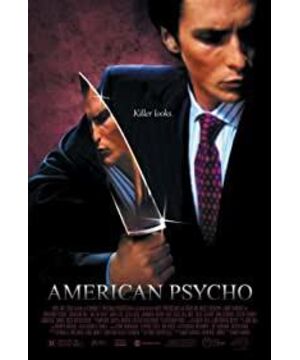The restaurant is chatting and tipping, and the first reaction is that this is not "Reservoir Dogs"? The further back you look, the monologues, the talkativeness, the torture, every scene is a botched imitation of Quentin. The playlist sharing before the protagonist's killing is basically the passage of "Like a Virgin" in "Reservoir Dogs" combined with the Bible in "Pulp Fiction". Although I don't exclude him from learning Quentin to let the protagonist talk about his music preferences, because it is correct to let the audience understand a person by showing a person's preferences and demeanor. But the chatter in this play is pure nonsense. Bullshit for bullshit's sake.
Generally speaking, the further back you look, the more you know about the protagonist, or the more you misunderstand. This is the most basic way to advance a movie. It stands to reason that after a large number of killing scenes and sex scenes should play this role. But this film does not, there is no progress at all, it is like looking at a photo. After killing the man and killing the woman, after killing the old lady and killing the old man, a phone call will be fine. What you think of him at the beginning, by the end of the film, has not changed. That's it. After 30 minutes of this film, I was completely determined to watch it through willpower. After watching it, I even started to seriously analyze how the interior decoration of the room played a role in the film's narrative - how boring I was to rely on analyzing the film symbols to keep watching. . . A bunch of audio-visual redundancy. The sound that matches the image provides little information. Especially when the male protagonist puts on his face at the beginning, he is completely transcribing the picture information orally. In other words, high emotional intelligence is "visually impaired friendly". If you show this movie to blind people, they will not miss the information of every sub-shot, because it is all read out.
There is a big controversy about this film is whether the protagonist really kills people or fantasizes, or kills and fantasizes. If you look at the "ambiguity" of the film lens, you will find that any possibility makes sense; from the point of view of film semiotics, which possibility you are willing to believe, you can always find evidence that your idea is "right" , then that possibility is not possible but inevitable. But I don't want to participate in this interpretation carnival at all and make any choices. Because I don't like or have any interest in this film, so I don't care.
View more about American Psycho reviews











